Oscar Teale | |
|---|---|
 | |
| Born | September 9, 1847 |
| Died | April 8, 1934 |
| Occupation(s) | Architect, magician |
Oscar Schutte Teale (September 9, 1847 - April 8, 1934) was an American architect, magician and writer.
Oscar Teale | |
|---|---|
 | |
| Born | September 9, 1847 |
| Died | April 8, 1934 |
| Occupation(s) | Architect, magician |
Oscar Schutte Teale (September 9, 1847 - April 8, 1934) was an American architect, magician and writer.
Teale was born in New York City. He worked as an architect by trade and was interested in magic. He was the fourth President of the Society of American Magicians. [1] He worked as a private secretary for magician Harry Houdini. [2] He wrote a series of articles on magic and debunking spiritualism in the Sphinx magazine in 1925. [3]
In July 1925 it was alleged that Houdini and Teale visited the offices of Houdina Radio Control and damaged most of the furniture by smashing them against the floor and walls. Houdini had accused the company of using his name unlawfully. [4] A summons for disorderly conduct was issued against Houdini but the charges were dropped because George Young the manager failed to appear in court. [5] [6]
Teale worked as an editor, illustrator and ghost writer for Houdini. He stated that Houdini contributed fragments to his books but the majority of the writing was done by hirelings. [7] When Houdini's book A Magician Among the Spirits (1924) was published, Teale stated that he had written "the damnable work". [8]
Teale designed the exedra monument for Houdini's family. In October, 1916 it was installed at Machpelah Cemetery. [9] [10] He was elected into the Society of American Magicians Hall of Fame. [11]
Articles
Books

Erik Weisz, known as Harry Houdini, was a Hungarian-American escape artist, illusionist, and stunt performer, noted for his escape acts.

A séance or seance is an attempt to communicate with spirits. The word séance comes from the French word for "session", from the Old French seoir, "to sit". In French, the word's meaning is quite general: one may, for example, speak of "une séance de cinéma". In English, however, the word came to be used specifically for a meeting of people who are gathered to receive messages from ghosts or to listen to a spirit medium discourse with or relay messages from spirits. In modern English usage, participants need not be seated while engaged in a séance.
Walter Brown Gibson was an American writer and professional magician, best known for his work on the pulp fiction character The Shadow. Gibson, under the pen-name Maxwell Grant, wrote "more than 300 novel-length" Shadow stories, writing up to "10,000 words a day" to satisfy public demand during the character's golden age in the 1930s and 1940s. He authored several novels in the Biff Brewster juvenile series of the 1960s. He was married to Litzka R. Gibson, also a writer, and the couple lived in New York state.
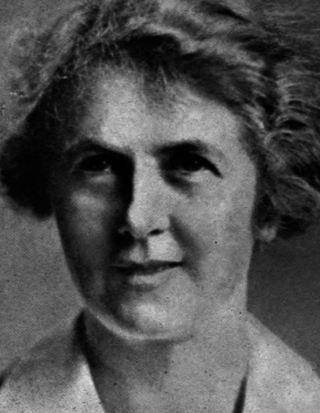
Mina "Margery" Crandon was an American psychic medium who said that she channeled her dead brother, Walter Stinson. Investigators who studied Crandon concluded that she had no such paranormal ability, and others detected her in outright deception. She became known as her alleged paranormal skills were touted by Sherlock Holmes author Sir Arthur Conan Doyle and were disproved by magician Harry Houdini. Crandon was investigated by members of the American Society for Psychical Research and employees of the Scientific American.

Henry Slade (1835–1905) was a famous fraudulent medium who lived and practiced in both Europe and North America. Slade was best known for his "slate writing" method, where he would purportedly produce message written by spirits on slates.

The Society of American Magicians (S.A.M.) is the oldest fraternal magic organization in the world. Its purpose is "to advance, elevate, and preserve magic as a performing art, to promote harmonious fellowship throughout the world of magic, and to maintain and improve ethical standards in the field of magic." To promote these endeavors the S.A.M. presents awards and fellowships in recognition of outstanding achievement in the Art of Magic.
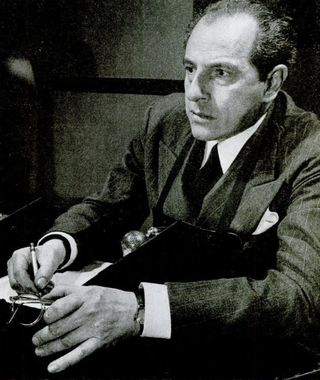
Joseph Dunninger, known as "The Amazing Dunninger", was one of the most famous and proficient mentalists of all time. He was one of the pioneer performers of magic on radio and television. A debunker of fraudulent mediums, Dunninger claimed to replicate through trickery all spiritualist phenomena.

Carl Hertz was an American magician.
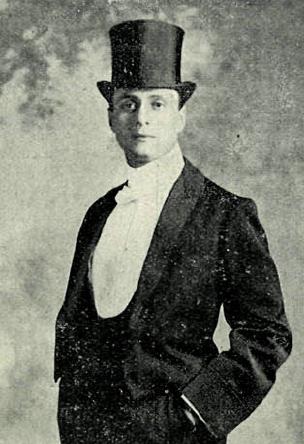
Will Goldston (1878–1948) was an English stage magician in the first half of the 20th century.

Machpelah Cemetery is a Jewish cemetery located within the Cemetery Belt in Glendale, Queens, in the U.S. state of New York. It was established around 1855. In addition to managing the 6-acre (2.4 ha) cemetery, the former Machpelah Cemetery Association also managed the adjacent Union Field Cemetery, New Union Field Cemetery and Hungarian Union Field Cemetery. Machpelah Cemetery was abandoned by the late 1980s. The deteriorating entrance building was demolished in 2013.
Dick Brooks is a United States magician and entertainer. He began his career in show business at the age of 10, and since that time has worked in TV commercials, stand-up comedy, writing, children's entertainment, and army shows, and performed in night clubs, casinos, and magic venues. Focus Magazine described Brooks as a "magician of renown".

Hereward Carrington was an American investigator of psychic phenomena and author. His subjects included several of the most high-profile cases of apparent psychic ability of his times, and he wrote over 100 books on subjects including the paranormal and psychical research, conjuring and stage magic, and alternative medicine. Carrington promoted fruitarianism and held pseudoscientific views about dieting.

John Mulholland was an American magician, author, publisher and intelligence agent.
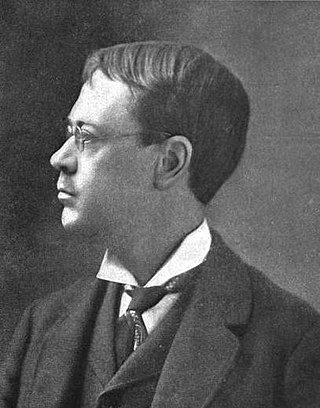
Henry Ridgely Evans (1861–1949) was an American amateur magician and magic historian.

Joseph Francis Rinn (1868–1952) was an American magician and skeptic of paranormal phenomena.
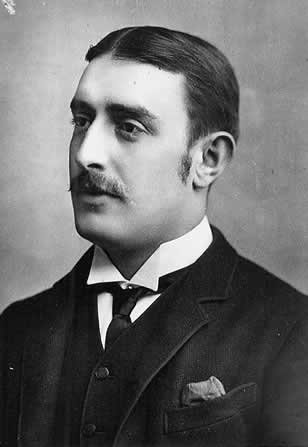
William Eglinton (1857–1933), also known as William Eglington was a British spiritualist medium who was exposed as a fraud.
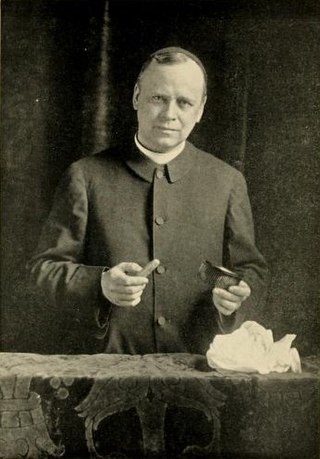
Carlos María de Heredia (1872-1951) was a Mexican magician and Jesuit priest.
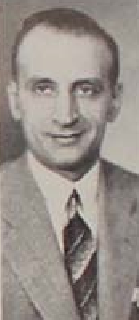
Frank Decker was a 20th-century American spiritualist medium who was discovered to be a fraud.

Samuel Spencer Baldwin, or Samri Baldwin, most well known as "The White Mahatma" was an American magician.

Robert Henry Gysel, also known as Bob Gysel, was an American escape artist, magician and skeptic.